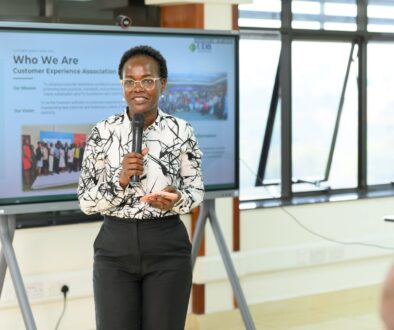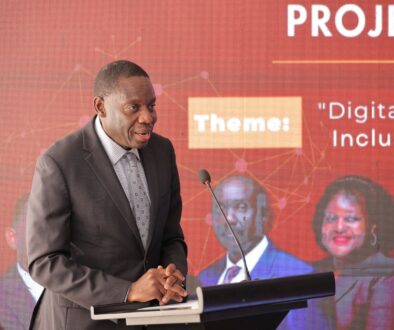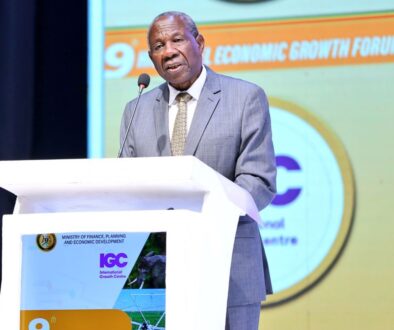Bankers Launch Guidelines, Code Of Conduct To Fight Fraud

Members of the Uganda Bankers Association, the Deputy Governor of Bank of Uganda, Dr. Michael Atingi-Ego, and the Permanent Secretary of the Ministry of Information, Communications Technology and National Guidance, Dr. Aminah Zawedde, Monday in Kampala launched the guidelines and a code of ethics aimed at harmonizing at strengthening the fight against fraud in the financial sector.
The Banking Industry Guidelines on Mitigation of Fraud (BIGF) framework and the revised Code of Conduct (COC) launched on Monday in Kampala provide for a Grey List of individuals or entities that are suspected of being involved in fraud. The BIGF also provides for a Black List that will feature those confirmed or convicted fraudsters.
The Chairperson Uganda Bankers Association, Sarah Arapta, fraud poses a significant threat, and that the industry which is evolving rapidly must aim to combat it effectively with these new guidelines.
She explained that the BIGF addresses evolving fraud trends, empowering customers, enhancing standards, and fostering collaboration with domestic & international anti-fraud agencies.
Arapta said: “Our Code of Conduct (COC) sets minimum standards for ethical conduct among banking staff, ensuring adherence to best practices & professionalism.” Adding: “Collaboration is key, therefore, we’re working with stakeholders including regulatory authorities, law enforcement agencies, and industry associations to create a safer financial environment.”
The Uganda Bankers Association explained that placement on the grey list means the matter has moved from a suspicious fraud incident or involvement to internal investigations being concluded and the matter has been reported to police, but conviction in court has not yet occurred.
Placement on the grey list requires member participants in the BIGF to be cautious and on the lookout regarding any transaction in which that party is involved. The Blacklist, on the other hand, shall entail customers, collaborators, and staff for whom judgment or conviction by a court of law has been secured.
The highest ethical standards in all actions, conduct duties with professionalism and expertise, demonstrate honesty, trustworthiness, and moral principles, and abide by relevant laws, regulations, and industry best practices.
Others are addressing risks “responsibly and proactively”, aligning behavior with organizational culture and values, making ethical decisions considering stakeholders’ interests, and fostering trust among stakeholders through transparency and consistency, among others.
The industry says the rise in electronic, cyber, and other forms of financial crime is being abetted by technological evolution, which is otherwise vital for the improvement of service delivery. Arapta says the increasingly innovative youth population, lack of job opportunities, globalization, and availability of enabling digital tools, among others, are making it easier for crime to thrive.
Wibrod Owor, the UBA Executive Director, said the cybercrime industry is so lucrative and is increasingly getting more sophisticated and organized, with professionals in different fields, which is estimated at 10 billion dollars globally.
Atingi-Ego says the evolution of the digital industry was a welcome development, easing the service delivery by bankers to the public, and even making banking easy and attractive, yet the same technology, including ChatGPT, is now being used by criminals.



